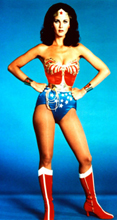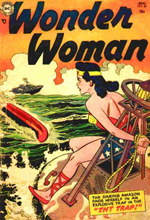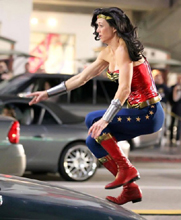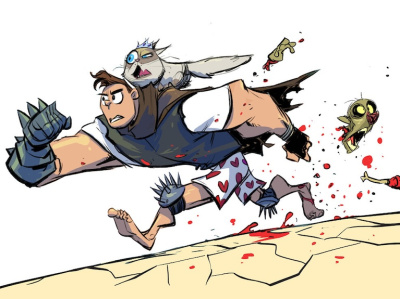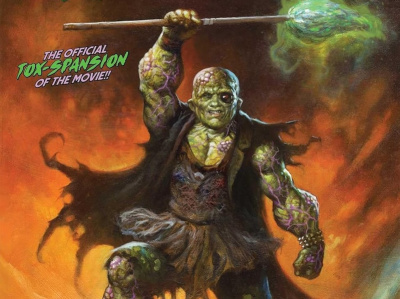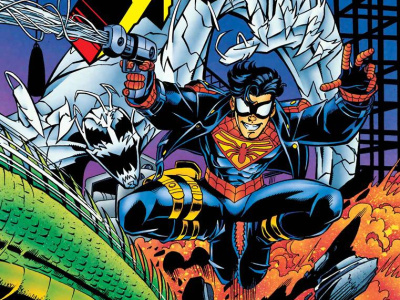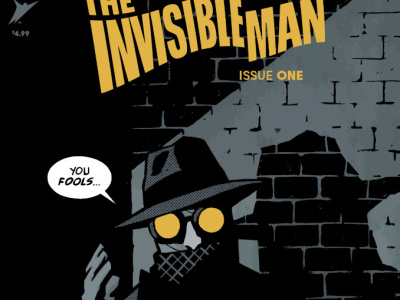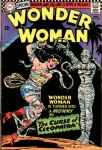
When NBC Entertainment Chairman Robert Greenblatt was attempting to explain, very diplomatically, his network’s decision to pass on David E. Kelley’s high profile Wonder Woman pilot, he made an offhand comment about the property that certainly jibed with its recent history, when he said: “I don’t know whether it’s cursed or what.” For not only did NBC pass on a small screen adaptation of the classic DC Comics’ character, but Joss Whedon, who is now busily directing The Avengers for Marvel Studios, had a Wonder Woman movie project that died back in 2007 (see “Whedon Off Wonder Woman Film”).
Created by the psychologist William Moulton Marston in 1941 in order to bring some much needed gender balance to the world of superheroes, Wonder Woman did find success in a medium outside of the comics in a TV series that starred Lynda Carter from 1975-1979. But even though the character was hailed by the then burgeoning feminist movement and the show managed to snag impressive ratings for ABC, there was a pronounced reluctance on the part of the network to renew or get behind the series. The first two years of the series, which garnered higher ratings, featured a period World War II setting that made the show more expensive to produce providing an excuse for ABC to cancel it after two seasons in spite of solid ratings. Warner Bros.TV then updated the series to the 1970s complete with a disco version of the theme song, references to skateboarding, and plots that reflected a new found concern with pollution. CBS aired the revamped show, but ratings were sluggish and the network cancelled it after two seasons in favor of airing more sitcoms. So judging from the experience of the first Wonder Woman series, the updating of the character is problematic and has to be done very carefully in order to avoid turning the show into a campy pastiche.
In David E. Kelley’s version of the character, Diana was a high-powered executive in Los Angeles who moonlighted as a crime fighter. A similar formula works for Batman, why not for Wonder Woman? The answer might lie in her old school accoutrements. The “Lasso of Truth” might have had all sorts of interesting allegorical resonance for Marston in the way females can “bind” males in, as Marston put it, the ideal state of “submission to a loving authority,” but as a crimefighting device in the age of CSI, it’s pretty weak tea, especially coming from Marston, who was one of the inventors of the polygraph. The “Lasso” also echoes Marston’s well known penchant for bondage themes, but even in today’s permissive environment, that’s still too much for network TV.
The indestructible bracelets shouldn’t be that much of a problem for an audience that accepts Wolverine’s adamantium claws, but the invisible airplane would appear to be a tough sell in today’s environment. The most successful small screen superhero comic-based series Smallville, which is finally ending its ten-year run, soft-pedaled its hero’s superpowers for years (see “No Tights, No Flights”) and only gradually introduced other superpowered denizens of the DC universe into the show’s narrative. Smallville also began as another variation on the then-popular teen angst genre, a sort of Dawson’s Creek with superpower overtones.
What successful contemporary TV series was Kelley’s Wonder Woman playing off of? What was the audience he was hoping to attract? It wasn’t as if women appeared to care very much about the revamping of Wonder Woman’s costume, which created a firestorm of commentary and criticism on the Web, almost all of it from males (see “Warner Bros. Tweaks Wonder Woman’s Costume”). In spite of her status as a feminist icon, and no matter how empowering her crime-fighting activities might appear, would a Wonder Woman TV show with a heroine dressed in costumes that range from tiny hot pants to shiny disco leggings be able to attract and hold a large female audience? It is interesting to note that NBC’s Greenblatt told Entertainment Weekly that he liked the Wonder Woman pilot, but “it just didn’t seem to fit in with what we were doing.”
While a solid seller, the Wonder Woman comic itself has never quite lived up to Marston’s vision of the way it would attract male readers: “Give them an alluring woman stronger than themselves to submit to, and they’ll be proud to become her willing slaves.” Well, perhaps that’s true for a certain segment of comic book fandom (the most recent issue of the Wonder Woman comic sold 31,002 copies and ranked at #50 in sales in the Top 300 Comics in April of 2011), but as for network and studio executives, evidently not so much.



